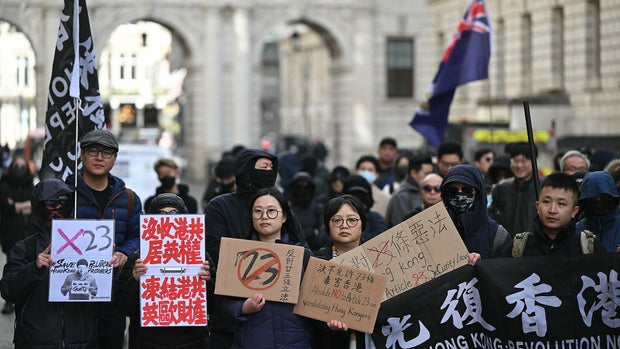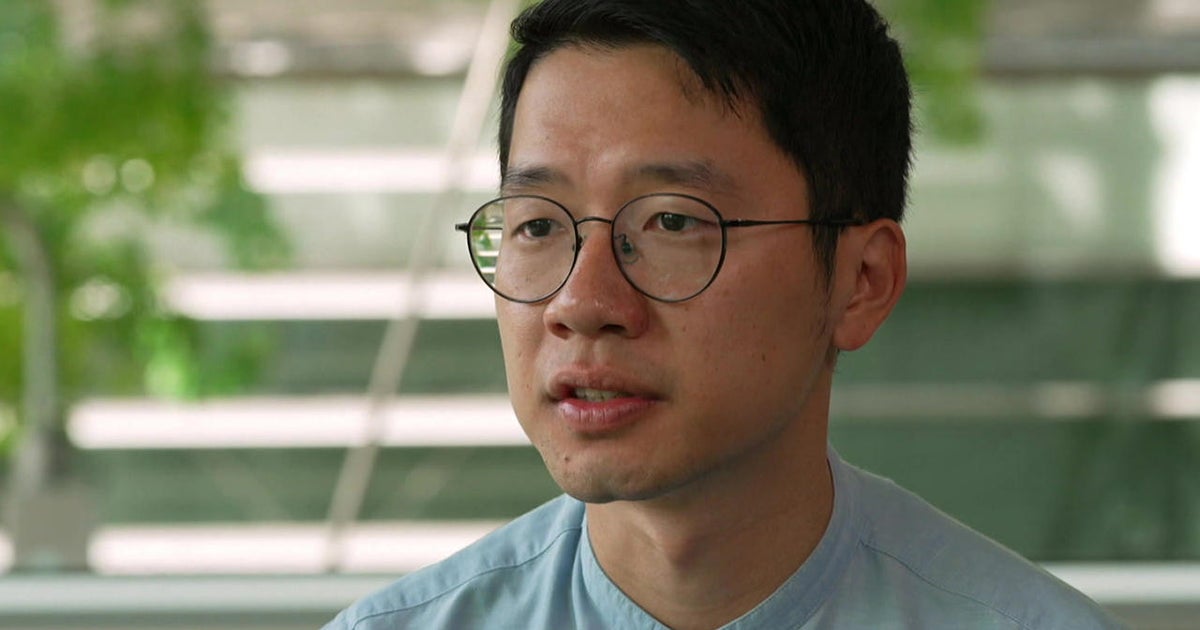How Hong Kong turned into what some observers call a police state
On July 1, "celebrations" for the city of Hong Kong's 27th anniversary of its return to China felt barely celebratory … a once vibrant Hong Kong hollowed of its people and its soul.
"This is a Hong Kong that's fundamentally changed," said America's top diplomat in the city, George May. "It is important, I think, that Americans who come here realize that you need to be careful what you say. People in Hong Kong are not free to criticize the government like they used to be able to."
Five years after what's recognized as likely the city's biggest pro-democracy, anti-China protests in history, this city is quelled, after Beijing and Hong Kong rammed through controversial national security laws that make any action or word critical of the government potentially punishable by life in prison. May said, "It's created a massive chilling effect over Hong Kong."
Change has been at the heart of Hong Kong's story. Once a Chinese backwater, it became a British colony in the mid-1800s, then evolved into a financial powerhouse. On July 1 1997, we witnessed its return to Beijing's rule with then-Prince Charles presiding. China agreed Hong Kong would stay in charge of its internal affairs for the next 50 years – a policy known as "One Country, Two Systems."
Cracks appeared 17 years later, with protests for universal suffrage to directly elect Hong Kong's leader, the chief executive – traditionally decided by Beijing.
Five years later, the system shattered. Protest organizers claim millions took to the streets over the next half-year.
- 2019: Some 1.7 million take part in 11th week of Hong Kong protests
- Hong Kong protests: How did we get here?
- U.S. urges China to respect Hong Kong's freedoms after airport violence, as photos show Chinese troop buildup
- What keeps the months-long, massive Hong Kong protests going? ("60 Minutes")
- Voices from Hong Kong: Inside a Chinese city's fight for democracy
Then, China decisively replied, decreeing a "National Security Law" for Hong Kong. The city's government said it arrested more than 10,000 people within the two years after the protests.
This past March, Hong Kong bolstered the National Security Law with its own version, Article 23.
"Some people say Hong Kong has become more like the mainland; well, that's inevitable," said Regina Ip, who has been a pro-Beijing legislator for decades. "Order, stability, safety have returned to Hong Kong, and we are dealing with new challenges."
Ip was asked if she is happy. "I think most of us are happy," she replied. "It's very safe, you know. We have 85,000 American citizens in Hong Kong. We still have 1,300 American enterprises."
The city's global rankings – in rule of law, and freedom of expression, assembly, and press – have nosedived. Hong Kong's stock market has lost about half its value, and hundreds of thousands have left for Western countries.
From a distance, Hong Kong looks like a city that's now stabilized. But like the currents running under Victoria Harbor, emotions run deep, strong, and hidden.
Chan Po-ying is one of Hong Kong's last pro-democracy activists willing to show her face, as she preps care packages for friends now in prison. She told CBS News she is scared.
Asked if she thinks people still want to voice their anger and frustration, she replied, "I still believe all of them still maintain this value. But yeah, they face a lot of obstacle," including imprisonment, or losing their job.
Chan's husband, an icon of Hong Kong's democracy movement for decades, is now one of about 300 charged under the National Security Law. Leung Kwok-hung, known as "Long Hair," was found guilty of subversion.
Then there's Jimmy Lai. We met him five years ago, at his home, days before his arrest.
He told Ramy Inocencio that he considers being hated by Beijing "a badge of honor."
Lai is the billionaire founder of Hong Kong's largest pro-democracy paper, Apple Daily, which the government forced to close. Lai has been detained for more than three years. At Stanley Prison, Lai spends 23 hours a day in solitary confinement.
Lai's son, Sebastien, fears his father, who's 76, will die there. "It's a very blatant case of political persecution," he said.
Sebastien Lai flies around the world meeting governments to keep his father in the spotlight. "My father is being persecuted because he ran a newspaper that spoke truth to power," he said. "Hong Kong is no longer this free city. It's now essentially a police state."
"Now is a new Hong Kong, arguably a much worse one," said Nathan Law, one of the main protest leaders of 2014 and 2019. Having fled to London, he is one of Hong Kong's most wanted fugitives overseas with a bounty for his capture.
The United Kingdom has become home to Hong Kong's biggest diaspora community. "You've got hundreds of thousands of Hong Kong people that are bringing a piece of Hong Kong with them, and I can reconnect them here," Law said.

Inocencio asked Law, "What is the lesson that you have learned about change, democracy, rights, freedoms?"
"A seemingly free society can collapse in just a matter of months, if you allow an unchecked power to destroy it," Law replied. "And the price of freedom is eternal vigilance."
Story produced by Aria Shavelson. Editor: Remington Korper.
Ramy Inocencio is a CBS News foreign correspondent based in London, covering Europe and the Middle East. He joined the Network in 2019 as CBS News' Asia correspondent, based in Beijing and reporting across the Asia-Pacific, bringing two decades of experience working and traveling between Asia and the United States.

